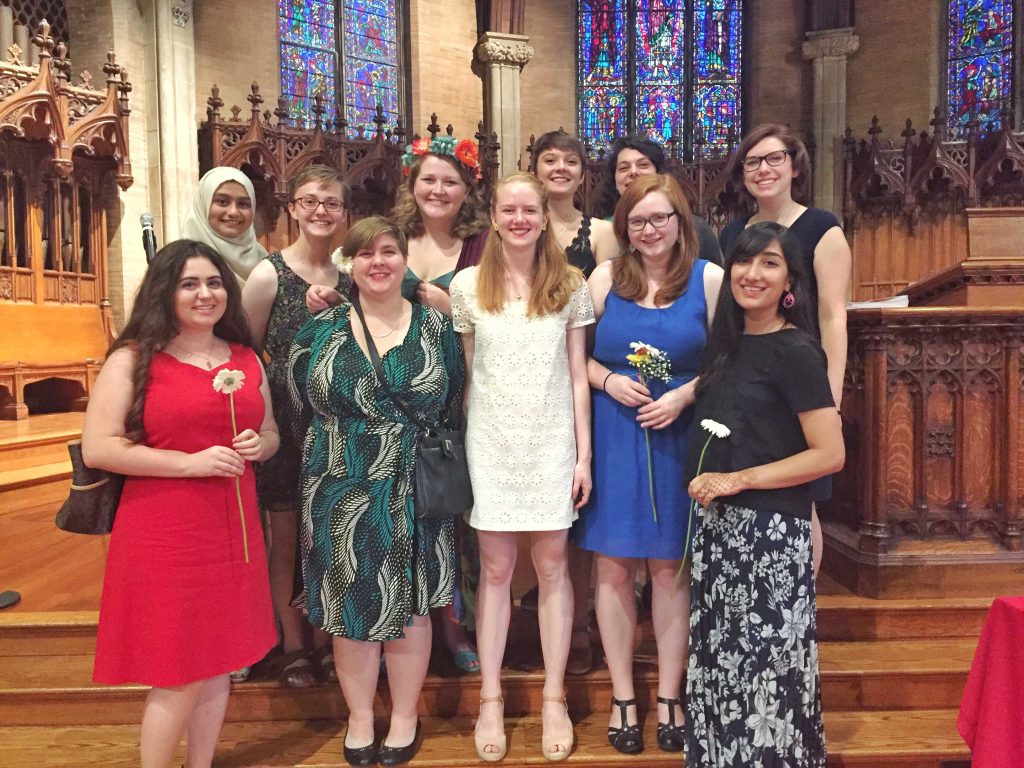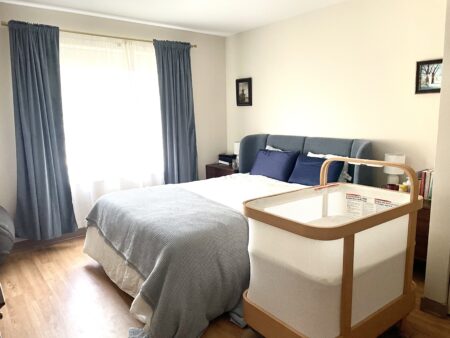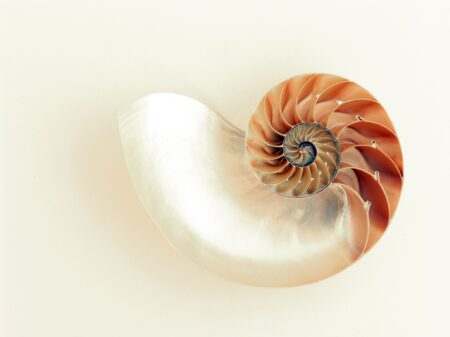I grew up in an interfaith world. My two closest friends in elementary school were Jewish and Catholic; because I was raised Unitarian Universalist, I grew up learning about different traditions and beliefs in not just our city, but within our own congregation. Today, I am rooted in my Christian faith, and my closest friends include members of the Muslim, Jewish, Buddhist, and atheist communities. In fact, I am close to more people outside of my tradition than in it.
I am so grateful for these friendships, because I know that they have enriched my life and made me a more thoughtful and compassionate person. But it’s important to remember that on a global scale, the experience that my friends and I have had is not only unusual, but very, very new. Above all, it’s something worth fighting for.
Last week, I was reminded of this time and time again. Along with a few other students from my college, I had the privilege of visiting Washington, D.C. for the President’s Interfaith and Community Service Campus Challenge Fall Gathering. We flew into Washington for two days of panels, discussions, and breakout sessions, which centered around communication and collaboration across beliefs. As we heard from speakers ranging from Director of the Peace Corps Carrie Hessler-Radelet to Interfaith Youth Core founder Eboo Patel, I kept asking the same questions: what makes this work so challenging? And why is it so necessary?
I think the answers to those questions are, at their core, the same: because this work is personal. To many of us, our differing faiths make up a core part of who we are. Belief is rooted within us, and when we enter into a space with people whose faiths are totally different from ours but just as deeply important to them, frustrations and challenges are bound to arise. We aren’t just disagreeing about the abstract ideas, but about the very things that make us who we are.
But the same thing that makes this work so challenging is exactly what makes it so important. This work matters because it is so personal, and so deeply rooted in who we are. The most valuable work is done when we aren’t just working with our hands, but also with our heads and hearts; when our very souls are engaged. When we can do this across borders and beliefs, we are stronger together than we ever were apart.
These are answers that I hadn’t articulated before going to D.C. While interfaith conversations have been a part of my life since I was a child, the harder conversations are newer to me. But at multiple panels and sessions, I saw religious leaders engaging in respectful and challenging conversations about the things that divided them, without giving up their own convictions or beliefs. They didn’t reach for the lowest common denominator, as some people claim about interfaith work. They didn’t bicker or argue, as some might worry when entering these conversations themselves. Rather, they listened, learned, and came together to build something beautiful.
I am inspired by and indebted to their example. And along with thousands of others in my generation, from every background and belief, I am honored and eager to carry the torch. In the words of Eboo Patel, “The previous generation of interfaith workers has run their leg of the race. We’re up next. It’s our turn. What a privilege.”

With a portion of my college’s Multifaith Council, through which I went to D.C. last week.






Such great perspective on such an important topic.
such an important topic and great perspective. I think it’s so important to seek to understand other cultures and religions. I think fear of differences drives too much hatred in our country.
Rachel | http://www.theconfusedmillennial.com
This is a really good perspective. It’s so important to foster relationships with people from other religions and cultures so we can be more tolerant as a people.
This is so so cool! For my senior year of high school, I went to a private Christian school and in our bible class we learned about all different belief systems and religions. It was great to gain perspective and compassion!
X,
Cristina / cristinawashere.com
Looks like a great opportunity!
Yes!!!! This is very important; thank you for writing this
I love your perspective on this, you’re lucky to be surrounded by such a diverse group!
Kayla | kaylablogs.com
Although I’m not really a religious person, I am a religious studies minor. It’s probably one of the best decisions I made in my college career! We have an interfaith center on campus and it’s such a great, positive place!
xo
Sami
http://www.theclassicbrunette.com
How cool to be connected to such a diverse and supportive group of friends. 🙂
I agree with this so much! It’s all about cultivating relationships!
xoxo, Candice
http://www.candicenikeia.com
Thanks for sharing this. I also think this forces one to move outside their comfort zone and learn and experience new things which help us grow.
Greta | http://www.gretahollar.com
This is such a great post, Sara. I think that you’re right–often we see this as such a personal issue we aren’t willing to step out and enter into a more diverse group. Which, when you think of it, doesn’t really make sense.
Loved this post
Rebecca | Life as a Dare
definitely an important thing to understand and appreciate different religions!
I think it’s so cool to be able to celebrate multiple cultures at the same time. Good for you being open minded!
This is very insightful. Thanks for sharing your views.
I’m not super religious myself, but it’s always interesting hearing other people’s faiths and beliefs. Loved reading your post and your views!
xoxo
Amy | Pastel N Pink
Such a great post! I’m marrying into a very Catholic family, and most of my friends are Catholic. I go to Mass with my fiance every sunday and have come to appreciate the calmness. I worship in my own way since there isn’t a church near by for me.
xoxo